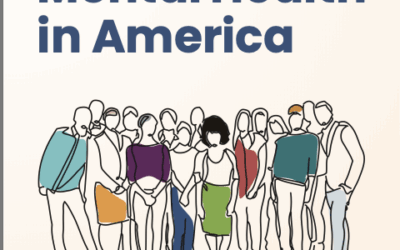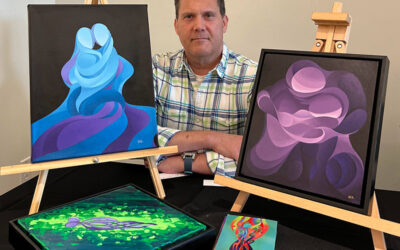Bruce Cruser, Executive Director, and Cheryl DeHaven, PRS Warm Line Manager
Even before the COVID-19 pandemic, our peer run Warm Line was providing free phone support to a steady increase in callers from throughout the state. Not a crisis “hot line,” a warm line can help prevent someone from escalating into crisis, provide a connection to resources or be with them through a moment of fear and anxiety. Peer run warm lines provide a connection with a human being who has lived their own experience with mental illness or addiction, is in recovery and is trained to listen non-judgmentally, give information and support.
Perfectly positioned as a remote support system, our Warm Lines help fill the mental health provider gap by being accessible to anyone with a land line or cell phone seven days a week. As isolation and fear in the recovery community increased during the spread of COVID-19, MHAV obtained emergency funding to boost our call capacity and double our staffing on the busiest shifts. We added texting and Spanish language capacity.
We also increased our staffing for the Alive RVA addiction recovery support Warm Line, a partnership with Richmond Behavioral Health and the Substance Abuse and Addiction Recovery Alliance. Federal funding to the state supports this program to help address the alarming increase in opioid overdoses and deaths.
In order to address the pandemic’s impact on the mental health of the general population, we started an additional Warm Line in partnership with the state and the Virginia Association of community Services Boards: The Virginia COPES Warm Line, serving 1,500 callers to date and providing a model of effective federal disaster response.
MHAV Peer Run Warm Line Data
The peer run Warm Line handled 1,052 calls during three months last summer at the height of the pandemic, a new record number of people served. We expected that number to drop, and it decreased during the next several months but has leveled off at a much higher rate than before the pandemic. From April through June this year, the Warm Line responded to 976 calls/texts, an 18% increase over the second quarter in 2020 and a 5% increase over the previous quarter. 36% of callers were new callers.
Call outcomes demonstrate how peers benefit from using the warm line.
- 88% received emotional support
- 50% received mental health support
- 5% addiction support
- 1% crisis support
- 75% of the contacts led to the caller creating a self-care plan which includes the peer identifying skills, strategies and/or resources that will support them on their journey towards wellness and recovery
- 55% identified support networks
- 99% of respondents who completed the survey at the conclusion of the contact say the warm line call was either “supportive” or “very supportive.”
Examples of a Warm Line contact:
- A person texting and calling the warm line on a regular basis contacts the warm line to get support when she is experiencing hallucinations and voices that make her feel afraid and uneasy. She shares her experiences and uses her time to identify coping skills that help her when these experiences arise. She is always expressing gratitude for the support she receives.
- A new caller from the Southwest reported having difficulty feeling motivated to complete daily activities, including going to work. She began using the line to “check in” as a way to receive ongoing support, set goals, identify self-care tools and learn about resources available to her. The caller was reluctant to use the local treatment system due to her professional role in the community.
- A regular adult caller who lives with his guardian parents calls when he gets angry with his mom when she tells him to do something that he doesn’t want to do. After connecting with a peer recovery specialist, he is able to identify healthy strategies to release anger, like going for a walk and to address his concerns by expressing how he feels to his mom. These strategies along with weighing the pros and cons of his actions provides him with an opportunity to be accountable. A positive shift in his affect is apparent when he feels empowered to make his own decisions about how to respond.



MHAV Peer Run Warm Line: 866.400.6428
Virginia COPES Warm Line for COVID-19 and returning to “normal” concerns: 877.349.6428
Alive RVA Addiction Recovery Support: 833.4PEERVA



